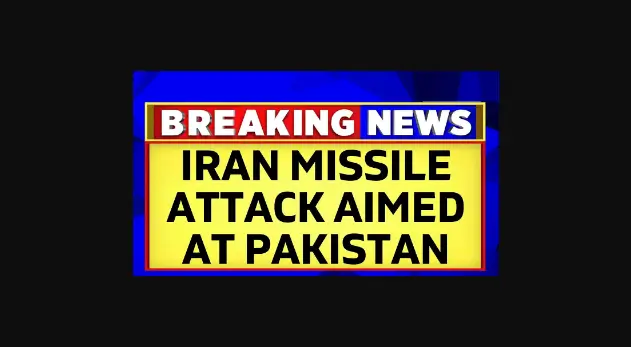What is Jaish Al-Adl: Target Of Iran’s Attack in Pakistan?
Jaish Al-Adl: Target Of Iran’s Attack in Pakistan
Recent events have thrust the name Jaish al-Adl into the spotlight, highlighting its role in a complex and sensitive international situation. Here’s a look at the group’s background and its motivations:
Origins and Ideology:
- Founded in 2012 by members of Jundallah, a Sunni Salafist group previously active in Iran.
- Operates primarily in the Sistan and Baluchistan province bordering Pakistan, seeking greater autonomy and rights for the Baloch people.
- Characterized by its anti-Shia ideology and opposition to the Iranian government.
Notable Actions:
- Claimed responsibility for a 2013 attack on Iranian guards, citing grievances against the government’s treatment of Baloch and its involvement in Syria.
- Designated as a terrorist organization by multiple countries, including the United States.
Current Situation:
- Recent accusations by Pakistan have put Jaish al-Adl at the center of a critical diplomatic dispute between the two countries.
- While details surrounding the alleged airstrike and fatalities remain disputed, the group’s presence on the border amplifies regional tensions.
Jaish al-Adl: A History of Violence in Iran
Jaish al-Adl, a Sunni militant group operating in Iran’s Sistan and Baluchistan province, has a history of targeting security forces and civilians within the country. Here’s a neutral and factual overview of the group’s activities:
Focused Attacks:
- Primarily targeting Iranian border guards and police stations in the Sistan and Baluchistan region.
- Recent incidents include:
- 2023 attack on a police station resulting in the deaths of four attackers and two officers.
- December 2023 attack on another police station killing 11 officers.
Wider Connections:
- Reports indicate cooperation with Kurdish separatist groups within Iran.
- Accusations from Iranian state media allege backing by Saudi Arabia and the United States.
International Recognition:
- Designated as a terrorist organization by both the US and Iran.
- US Department of State describes Jaish al-Adl as targeting “Iranian security personnel,” government officials, and civilians.
Behind the Mask: Jaish al-Adl’s Operational Tactics
Jaish al-Adl’s operations have fueled tensions between Iran and Pakistan, highlighting the group’s unique approach to armed conflict. Here’s a breakdown of their key strategies:
Cross-Border Raids:
- Most attacks involve incursions from Pakistan, utilizing the country as a haven for planning and regrouping.
- This practice has sparked diplomatic friction between the two nations.
Guerilla Warfare:
- Jaish al-Adl favors hit-and-run tactics, employing small arms and rocket launchers against Iranian border outposts and military patrols.
- A 2017 report by Nicholas Cappuccino in The Iran Primer describes their distinct style:
- Fighters often engage government forces directly, unlike other rebel groups.
- They utilize infrared technology for nighttime raids on government facilities.
Online Propaganda:
- Jaish al-Adl actively promotes its activities through online platforms, showcasing their operations and capabilities.
- This strategy aims to attract recruits and garner international attention.
Effective Strategies:
- Experts cite the group’s discipline, mobility, terrain knowledge, and innovative tactics as contributing factors to their perceived effectiveness.
- These attributes, combined with a network of logistical support, have established Jaish al-Adl as a formidable insurgent force.
A Tangled Web: Regional Tensions Fueling Iran’s Actions
Iran’s recent airstrike in Pakistan has ignited international concerns, adding another layer to the complex geopolitical landscape of West Asia. Here’s a neutral analysis of the situation, keeping sensitive language at bay:
Connecting the Dots:
- The strike follows Iran’s previous missile attacks in Iraq and Syria, targeting groups it deems “anti-Iranian.”
- Some of these groups, like the Syrian Sunni opposition and Kurdish rebels in Iraq, reportedly receive support from Jaish al-Adl, the group allegedly targeted in Pakistan.
- Iran claims its Iraqi strike aimed at Israeli intelligence, sparking outrage from Baghdad, which saw it as a violation of sovereignty.
- Further complicating the picture, Iran supports Hamas, the Palestinian group involved in the ongoing conflict with Israel.
A Region in Turmoil:
- Iran’s actions contribute to a wider web of regional crises:
- Israel’s conflict in Gaza
- Houthi rebels attacking Red Sea vessels in support of Palestinians
- Ongoing unrest in Iraq and Syria
Understanding the Context:
- While attributing motives and assigning blame remains sensitive, analyzing the interconnected nature of these conflicts is crucial.
- Each strike or action carries ripple effects across the region, exacerbating existing tensions and jeopardizing stability.
Seeking Diplomatic Solutions:
- Navigating this complex landscape requires understanding the historical, political, and ideological factors at play.
- Dialogue, de-escalation, and respect for national sovereignty are crucial steps towards peaceful solutions and regional stability.
Pakistan’s Firm Response to Iran’s Airstrike
Pakistan’s reaction to the Iranian airstrike on its territory was swift and resolute, highlighting the gravity of the situation and potential diplomatic fallout. Here’s a neutral and factual overview of their response:
Condemnation and Concern:
- Pakistan strongly condemned the attack, terming it “completely unacceptable” and an “unprovoked violation of its sovereignty.”
- Foreign Ministry statements expressed concern over the potential for “serious consequences” and questioned the timing of the incident amidst an existing communication channel between the two nations.
- The unilateral nature of the act was emphasized as being contrary to good neighborly relations.
Diplomatic Actions:
- Pakistan sent a strong diplomatic message by expelling the Iranian ambassador and recalling its own envoy from Tehran.
- These actions aim to convey the severity of the perceived violation and express displeasure with Iran’s conduct.
Domestic Context:
- It’s noteworthy that the incident occurred during a sensitive time, with Pakistan preparing for national elections and a caretaker government in place.
- This adds another layer of complexity to the situation as national security concerns and diplomatic stability intertwine.
Importance of Neutrality:
Understanding the group’s actions requires a neutral perspective, focusing on factual information without promoting violence, hatred, or discrimination. This approach fosters informed discussions about the complex situation in the region.
Note: The information above might not be accepted 100%. Please verify from your own sources. We will not be responsible for any kind of loss due to our content.
For more news, please visit Munafa Marketing.




